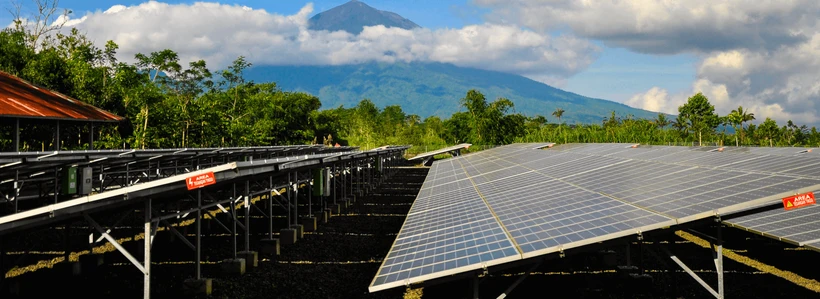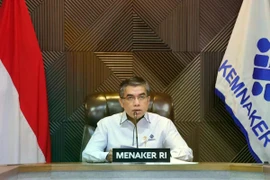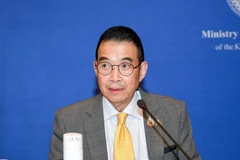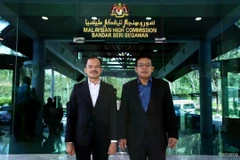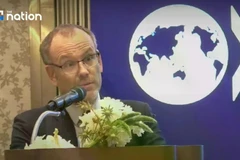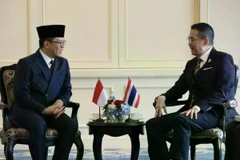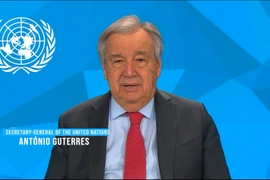Jakarta (VNA) – Indonesian Minister of Energy and Mineral Resources Bahlil Lahadalia on December 29 said that the country wants to become a country that is not only independent in oil and gas but also in the renewable energy sector.
He said Indonesia is continuing to take various strategic steps to realise energy self-sufficiency.
To that end, the government is continuing to encourage the development of renewable energy potential by targeting a significant increase in renewable energy capacity in the next few years.
This step is also in line with the government’s commitment to supporting the global energy transition toward cleaner and more environmentally friendly energy sources.
One of the efforts to support the energy transition in Indonesia is the mandatory 40% biodiesel (B40) programme, which will be implemented in 2025, followed by the B50 programme in 2026. It is expected that once the B50 programme is implemented, Indonesia will no longer need to import diesel.
In 2023, the use of biodiesel in the domestic market was recorded at 12.2 million kilolitres. The figure is targeted to increase to 12.5 million kilolitres in 2025.
The mandatory biodiesel programme helped save up to 7.9 billion IDR in 2023. Additionally, the processing of crude palm oil (CPO) into biodiesel produced added value of 15.82 trillion IDR (over 1 billion USD).
According to estimates from the Ministry of Energy and Mineral Resources, by the end of 2024, the share of renewable energy in Indonesia’s energy structure is expected to reach 14.1%, with geothermal energy as the main pillar. The utilisation of renewable energy in the national energy structure has reached 13.9%.
The contribution of electricity generated from geothermal energy has been recorded at 5% of the total national energy structure, or approximately 40% within the renewable energy structure.
Geothermal energy also plays an important role in supporting Indonesia's efforts to decarbonise its electricity sector.
Since 2014, the installed capacity of geothermal power plants has increased by 1.2 GW, bringing Indonesia's total installed geothermal capacity to 2.6 GW. This figure corresponds to 11% of the country’s total geothermal potential, making Indonesia the second-largest producer of geothermal electricity in the world.
The enhancement of oil and gas exploitation, as well as the development of renewable energy, is expected to lead Indonesia towards stronger and more sustainable energy independence.
The country is also continuing its efforts to accelerate the use of electric vehicles and improve energy efficiency. The government believes that strengthening cooperation with various stakeholders, including the private sector and communities, is key to achieving national energy security./.
